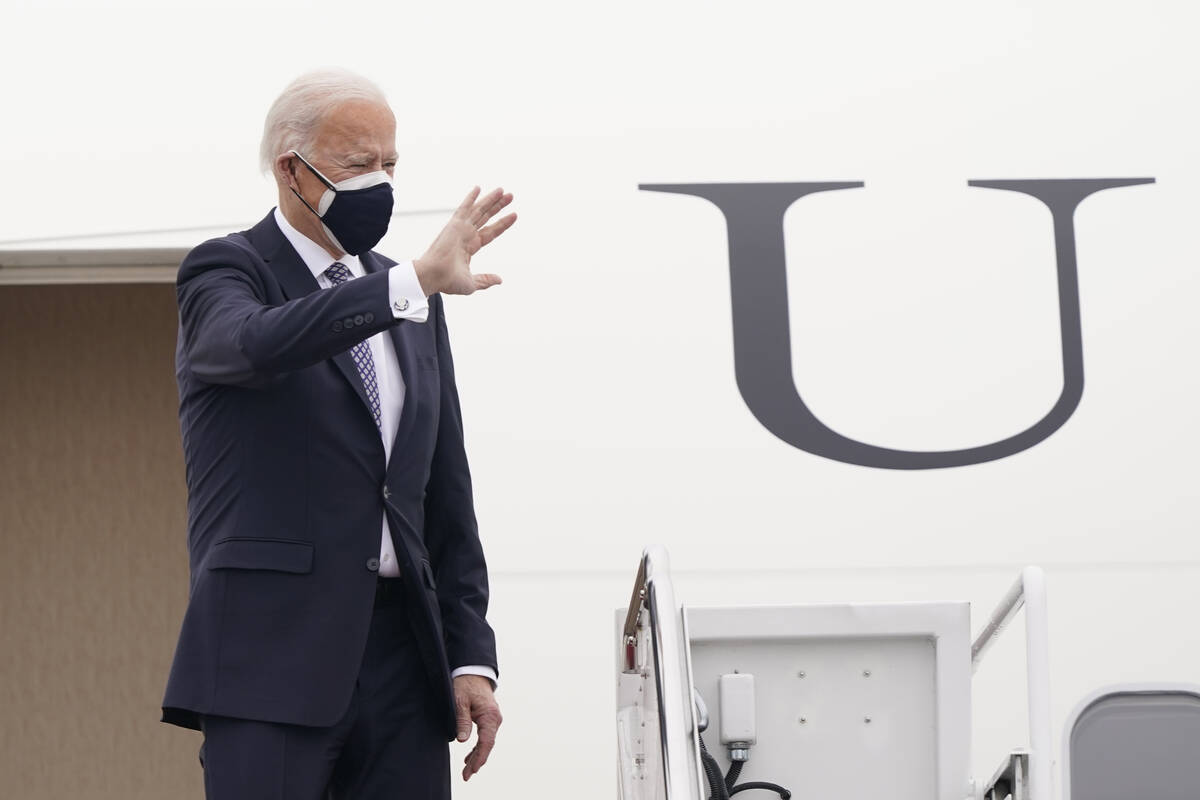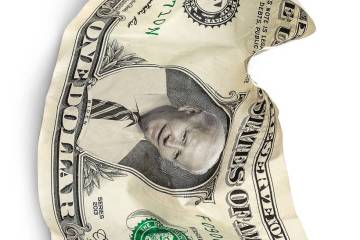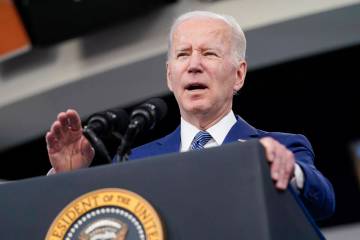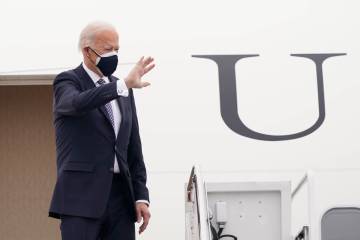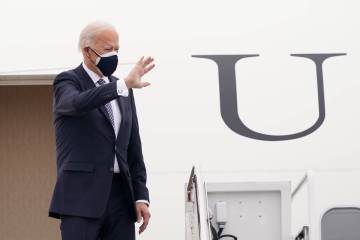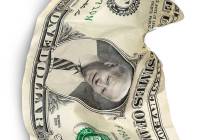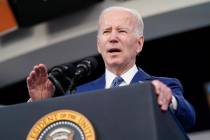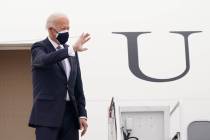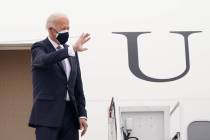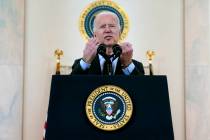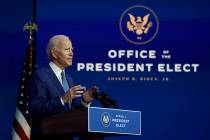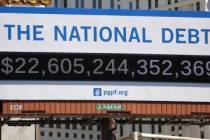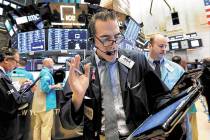RICHARD A. EPSTEIN: Biden’s economic meltdown
Two numbers, not unrelated, summarize President Joe Biden’s current plight some 13 months after his inauguration. Inflation, running more than 7 percent annum, is the highest in the past 40 years; Biden’s general popularity is now under 40 percent and falling.
His approval rating on fighting inflation is under 30 percent. Biden supporters used to link inflation to COVID complications and supply chain difficulties. But as those two problems receded, inflation rose even more rapidly, leaving conscious government policies as the culprit.
To see why, note that inflation is just too many dollars chasing too few goods. So when money supply increases and the supply of goods contracts, inflation climbs. If everyone could instantly adjust to the new situation, then no big deal, as everyone would receive the same fraction from a pie just as big as before. But that never happens. Instead, the pie shrinks and relative positions change.
People who have borrowed for the long term get a windfall of paying debts off with cheaper dollars. But flip the coin, and lenders suffer a partial wipeout of capital. The windfall on the one side is not likely to offset the loss on the other.
Inflation typically moves in fits and starts, so that increased uncertainty makes it harder for everyone to plan future transactions. It is for good reason that sound monetary theory favors price stability to prevent the inevitable decline in social wealth, which in turn could be hastened by bracket creep in federal and state taxes on long-term capital assets.
But why inflation now? Because Biden has made a mess on both the sides of the problem.
Biden has long been a fan of cheap money, and thus has allowed the national debt to grow and has constantly used tax dollars to increase transfer payments to his core constituencies on the left, whether through large COVID payments, rent supplements or unemployment benefits. His Federal Reserve has long practiced quantitative easing, whereby the government buys Treasury bills or other assets in order to inject more dollars into the financial system — leaving it highly uncertain whether the government could recover its costs when it wants to unwind these transactions.
History is prologue, so markets are uncertain how and when the Federal Reserve will reverse field. Confidence falls further because Sarah Bloom Raskin, whom Biden has nominated for a senior position at the Fed, now faces fierce Republican opposition because of her stated willingness to use financial policy to steer bank credit away from fossil fuels. This is a clear deviation from the Fed’s traditional dual mission of curbing inflation and creating jobs.
The situation is no better when seeing how the Biden administration is determined to shrink the supply of goods and services. Fortunately, his wafer-thin margins in the House and Senate have prevented him from enacting new reforms. But the legislative stalemate has only prompted him to issue more ill-thought executive orders.
As one would expect, Biden’s views on climate change shape his energy policy, given his determined efforts effort to wean the United States from fossil fuels in his ill-conceived attack against global warming after a quiet 2021 — only the sixth-warmest in recent years. But before those numbers came out, he stopped the Keystone XL pipeline by executive order immediately on taking office without asking how his actions would influence prices and supplies in the United States or its relationships with Canada.
Since that opening salvo, he has slow-walked approval for fracking on public lands and has been put in the odd position of begging other nations — Russia and the OPEC countries — to produce more oil and gas to offset the domestic shortages. How the substitution of foreign fossil fuels for domestic ones would control greenhouse gases is anyone’s guess.
But once the prices started to rise, Biden doubled down on his original mistake by calling on the Federal Trade Commission and the Department of Justice to ferret out collusive behavior in the industry, even as the majority of oil capacity lies in the hands of large national companies whose activities are largely beyond the reach of American antitrust law.
In so doing, Biden follows one dangerous precept of progressive thought: Never deregulate in the face of market dislocation but always seek to offset one regulatory imperfection with another.
That tactic is evident in the large looming fight that will come before the Supreme Court in West Virginia v. EPA, where the issue is EPA restrictions on how and where greenhouse gasses can be produced. Regulators always want discretion to pick the right tools for a new job. But too often their desired regulatory tool kit opens the door to illicit extensions of government power.
An analogous risk is manifest in yet another recent executive order, in which Biden has announced that, in the name of public efficiency under the 1949 Federal Property and Administrative Services Act, he can limit the bidding on government construction contracts — a market that now runs about $362 billion per year — to unionized firms. It is a supreme irony that the president who is prepared to overuse antitrust enforcement in so many areas of business and trade now seeks to use its own monopoly power to exclude nonunion firms from bidding on government contracts.
It is the same old story: Government mandates that undermine market efficiency exacerbate the damages that come from expanding money supply. Biden needs to change course now or suffer a wipeout come next November in the midterm congressional elections.
Richard A. Epstein is a professor at the New York University School of Law, a senior fellow at the Hoover Institution and a distinguished service professor of law emeritus and senior lecturer at the University of Chicago. His Review-Journal column appears quarterly.



